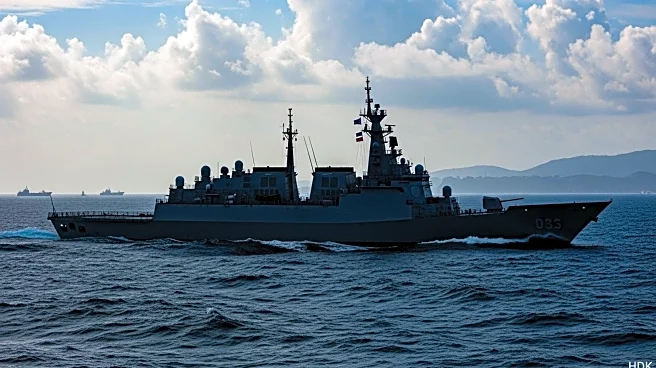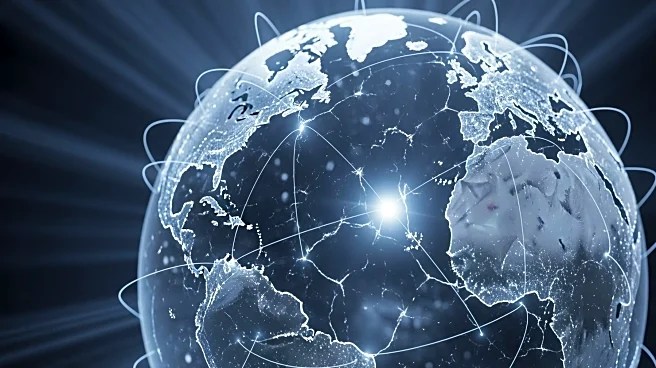What is the story about?
What's Happening?
Recent activities by Chinese warships, including maneuvers in the Taiwan Strait and the North Pacific, have heightened tensions in the region. These actions are part of China's broader strategy to assert its influence and challenge U.S. presence in the Asia-Pacific. The People’s Liberation Army Navy has been conducting large-scale blockade drills and frequent incursions across the Taiwan Strait’s midline, which have been interpreted as pressure tactics against Taiwan. U.S. officials have expressed concerns that President Xi Jinping has directed the military to be prepared to take Taiwan by 2027. These developments are part of China's long-term ambitions to dominate the region, including control over the South China Sea.
Why It's Important?
The strategic maneuvers by China in the Taiwan Strait and surrounding areas are significant as they represent a direct challenge to U.S. influence in the Asia-Pacific region. The potential for conflict over Taiwan could have far-reaching implications for global security and economic stability. The U.S. has longstanding commitments to Taiwan's defense, and any escalation could strain U.S.-China relations further. Additionally, China's actions could undermine U.S. alliances in the region, affecting the balance of power and potentially leading to a new geopolitical order dominated by China. This situation also impacts global trade routes and economic interests, given the strategic importance of the South China Sea.
What's Next?
The U.S. is likely to increase its military and diplomatic efforts to counter China's influence in the region. This could involve strengthening alliances with countries like Japan, South Korea, and the Philippines, and increasing military support to Taiwan. The U.S. Congress may also consider additional measures to bolster defense capabilities in the Indo-Pacific. Meanwhile, China is expected to continue its assertive policies, potentially leading to further confrontations. The international community will be closely monitoring these developments, as any miscalculation could lead to significant conflict.
Beyond the Headlines
The ongoing tensions highlight the complex interplay of military, economic, and diplomatic factors in the Asia-Pacific region. China's actions are not only about territorial claims but also about reshaping the regional order to reflect its growing power. This situation raises ethical questions about sovereignty, self-determination, and the role of international law in resolving disputes. The U.S. and its allies face the challenge of responding to China's rise without escalating tensions into open conflict, requiring a delicate balance of deterrence and diplomacy.















